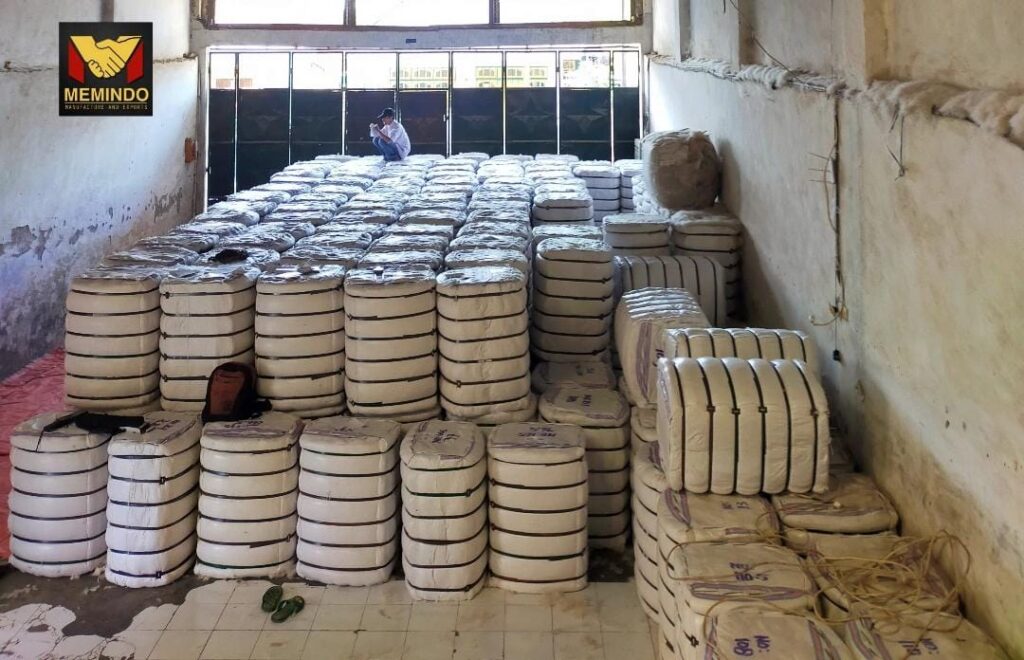Kapok: A Natural Fiber Supporting the Green Economy
Kapok is a natural fiber derived from the seeds of the Ceiba pentandra tree, a member of the Malvaceae family. This tree thrives in tropical regions such as Southeast Asia, Central America, and Africa. For centuries, kapok has been used as a filling material for pillows, mattresses, and life jackets. However, in recent years, it has gained renewed attention as an eco-friendly alternative with the potential to support the green economy.
Kapok’s Role in the Green Economy
The green economy is a sustainable development model that promotes economic growth, resource efficiency, and environmental protection while ensuring social inclusion. Its primary goal is to create a balance between economic progress, ecological sustainability, and human well-being.
Kapok plays a vital role in advancing this vision by offering a biodegradable, renewable, and eco-friendly alternative to synthetic materials. Its natural properties, low environmental impact, and sustainable cultivation methods make it an excellent resource for industries seeking greener solutions.
Environmental Benefits of Kapok
- Biodegradability and Waste Reduction
Unlike synthetic fibers, which often contain petroleum-based chemicals and take centuries to decompose, kapok is 100% biodegradable. This ensures that kapok-based products naturally break down, reducing landfill waste and preventing microplastic pollution. - Lower Carbon Footprint
Kapok processing requires significantly less energy than synthetic fibers like polyester and nylon. As a result, it generates lower carbon emissions, supporting the green economy’s goal of minimizing energy consumption and greenhouse gas emissions. - Sustainable Agroforestry Practices
Kapok trees can be grown in agroforestry systems, where they are cultivated alongside crops such as coffee or cocoa. This farming method:- Enhances soil health by preventing erosion and improving fertility.
- Boosts biodiversity by creating a natural habitat for wildlife.
- Increases land productivity without harming ecosystems.
Versatile Applications of Kapok in Green Industries
- Eco-Friendly Insulation for Sustainable Construction
Kapok’s hollow fiber structure makes it an excellent natural insulator. Unlike synthetic insulation, which often relies on plastic-based materials, kapok provides a renewable and biodegradable alternative. Using kapok in green building materials reduces environmental impact while improving energy efficiency. - Sustainable Packaging Solutions
As businesses move away from plastic-based packaging, kapok is emerging as a lightweight, biodegradable alternative to foam and synthetic packing materials. Kapok-based packaging can be composted or reused, contributing to the shift towards a circular economy. - Natural Fill for Bedding and Upholstery
Kapok has long been used as a filling for pillows and mattresses, but its eco-friendly properties make it increasingly popular among sustainable home product manufacturers. Kapok bedding is:- Hypoallergenic and free from synthetic chemicals.
- Breathable, helping to regulate temperature naturally.
- Durable and lightweight, offering long-lasting comfort.
- Sustainable Fashion and Textiles
The fashion industry is one of the largest polluters, but kapok presents a biodegradable alternative to cotton and synthetic fibers. Researchers are developing kapok-based textiles for clothing, upholstery, and accessories, helping to reduce the industry’s reliance on resource-intensive materials.
Economic and Social Benefits of Kapok
- Supporting Local Farmers
Kapok cultivation provides income opportunities for farmers in tropical regions, promoting rural economic development. By integrating kapok into sustainable farming systems, local communities can benefit from long-term agricultural productivity. - Reducing Dependence on Synthetic Materials
By replacing petroleum-based products with kapok-based alternatives, industries can:- Lower production costs.
- Reduce reliance on non-renewable resources.
- Minimize exposure to toxic chemicals used in synthetic fibers.
- Encouraging Circular Economy Practices
Kapok aligns with circular economy principles by enabling:- Reduction of waste through biodegradable products.
- Reuse in sustainable product design.
- Recycling into organic materials for composting.
Conclusion: A Fiber for the Future
Kapok is more than just a fiber—it is a sustainable solution that supports environmental conservation, economic resilience, and social well-being. As industries and consumers move towards greener choices, kapok’s renewability, versatility, and low environmental impact make it a key player in the transition to a sustainable future.
By embracing kapok-based products, we can reduce pollution, support ethical industries, and contribute to a healthier planet. The future of eco-friendly materials is here, and kapok is leading the way.

